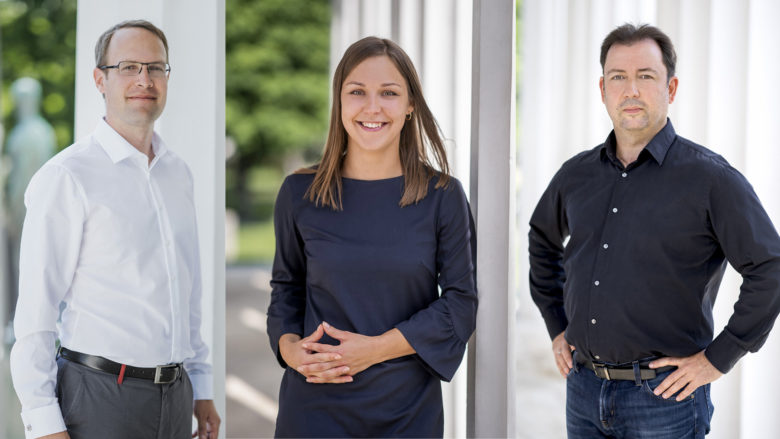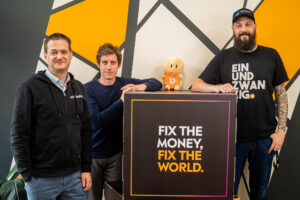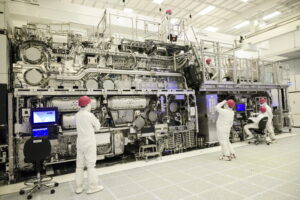Austrian 3VC launches a €150M fund to support startups in the CEE and DACH region

Downrounds, fears of recession, mass layoffs, stock crash, crypto collapse. Things stay a bit differently for the tech industry. The Austrian scale-up investor 3VC founded by Roman Scharf and Peter Lasinger recently dropped some good news: 3VC will be launch its second fund after the first fund from 2018 (approx. €50 million). The first deals are to be announced soon, and there will be exits from the first fund in the next two or three years.
This time the target is €150 million, after the first closing there is already more than €50 million in the pot. It will not be officially revealed who the limited partners providing the money are, but they should be relatively congruent with those of the first fund – and there were Sparkasse Oberösterreich, Raiffeisen, Vienna Insurance Group, Dietrich Mateschitz via Red Bull or Hans Peter Haselsteiner with them.
3VC will stay with the current model and make 3 to 4 investments in European scale-ups (focus on DACH and Eastern Europe), in the Series A phase. New partners of the fund are Eva Arh, the first employee of 3VC (then still Capital300), and Dynatrace co-founder Sok-Kheng Taing, who already headed the investment committee of the first fund. They want to invest in syndicates, i.e. with co-investors, in the startups. Focus: exclusively software.
The fund will support companies that solve massive problems through software and Web3 infrastructure, regardless of the industry or business model (B2B, B2C). The average ticket size of the fund is $5 million, while the range is $1-10 million.
Eva Arh: “Deliberately not doing FOMO rounds”
“The market environment is of course very exciting, but it holds just as many opportunities as there are problems,” says Scharf in an interview for Trending Topics. “We deliberately didn’t do the FOMO rounds last year,” adds Eva Arh. “We continue to be very selective.” The companies from the first fund would all still be on the market and growing healthily. 75% of the scale-ups in the portfolio would already be worth more than €100 million. The strategy can be called “conviction investment” – every single company in the portfolio can and must contribute to the result. “It’s not about the one company that makes the fund return, but about several companies that are performing really well,” says Arh.
Roman Scharf: “Infinite boom years are unrealistic”
When asked about the downturns and mass layoffs in the start-up and scale-up market, which are currently plaguing the industry as a result of fears of recession, Scharf says: After the record year 2021, there is now a “healthy recalibration” following “absurd assessments”. “We stayed out of it as 3VC,” says the experienced investor. “If your shoes are too big, it’s difficult to walk, and if you stumble, nobody will catch you. The very VCs that pay the highest ratings are the ones who don’t help when there’s a problem.”
And further: “Cooling down is good for the industry. I don’t even want to invest in founders who want the highest rating. You don’t hire the most expensive or the cheapest salesperson, you hire the best,” says Scharf. “There will be downrounds, there will be uprounds. Unicorns will disappear and there will be new unicorns. The expectation that there will be endless boom years is unrealistic.” That’s how it is in an ecosystem – old players are replaced by new ones, a never-ending cycle.
Why unicorns are now facing more difficult times after the hype of 2021
Eva Arh: “It’s about having a runway now”
The downturn has been noticeable for several months with falling valuations and recently with mass layoffs at tech companies. “We will see fewer of these rounds where 200x multiples are paid on sales. ‘Healthy growth’ will be worth more than ‘growth at any cost’,” says Arh. “It gets harder when you have an average team with an average product. And the tip for the founders is that it is now about having runway so that you don’t have to raise next year.”
Scharf denies that a portfolio company has already been caught off guard. The termination of around 90 employees (approx. 8%) at the photo app Picsart would have other reasons. Scharf: “Picsart is more about IPO preparation. They’ve had four or five years of growth and have decided to make the benchmark adjustments that the stock market wants.”






























